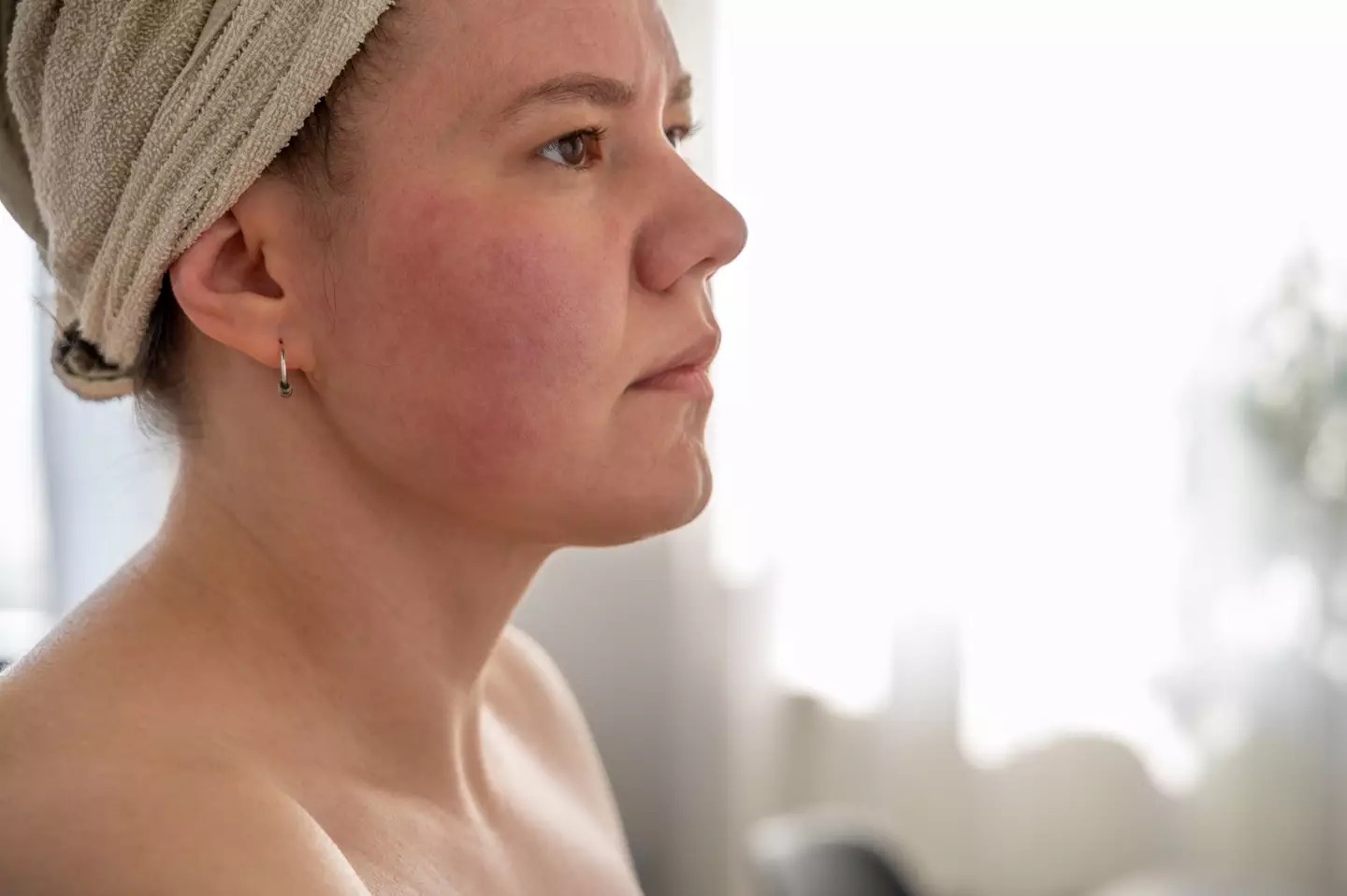
Boozing has long been associated with a number of unpleasant side effects - whopping headaches, crippling nausea and the anxiety-inducing need to ask your pals, 'Did I do anything weird last night?'.
For some drinkers, however, alcohol consumption at any level can cause a rapid flushing of the face to a degree that simply can't be unnoticed.
Scientists estimate that the reddening of cheeks, forehead and chin is a phenomenon that affects around 540 million cheeky-tipple fans, and it has remained a somewhat misunderstood area.
Thankfully, however, a team of experts have spent several years diving deep into how exactly alcohol causes flushing, finding it poses as much of a health risk as it does a hindrance to your night-out aesthetic.
Advert

It turns out, when alcohol is consumed by a person, their liver is used to break down the booze, turning it into a compound called acetate. The body is able to process this compound both quickly and safely.
Before it even reaches this stage, however, the drink travels via an intermediate chemical called acetaldehyde. Most people's bodies are able to convert this into acetate and as such, eliminate it.
In certain individuals, however, this process becomes stunted, being that their bodies don't have proper access to an enzyme that is responsible for breaking down this acetaldehyde.
As such, the toxic compound stays within the system for much longer, triggering a number of side effects - the main one being facial flushing.
The rise in acetaldehyde triggers something known as a histamine response, which sees blood vessels within the face widening, and as such, reddening.

As per ZBiotics, in some people, this unwanted symptom of drinking comes hand-in-hand with a quickening of the heart rate, a possible headache, or nausea.
However, as well as the short-term effects of acetaldehyde increase, scientists have been assessing the longer-term impact of the process that causes flushing, and apparently, the toxicity of the chemical has been linked to chronic health issues, including the likes of high blood pressure, cancer and liver disease.
The issue is that doctors have since stated that the only real way of preventing this build-up of acetaldehyde is to quit drinking altogether.
It comes after a study conducted by the University of Sussex found that people who gave up alcohol the entire month of January ('Dry Jan') saw significant improvements to health and wellbeing - even for as many as six months later.
Topics: Alcohol, Health, Life, Real Life, Food and Drink